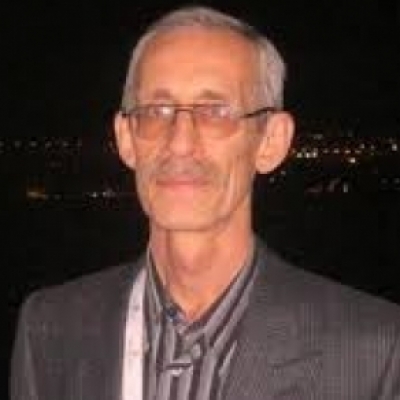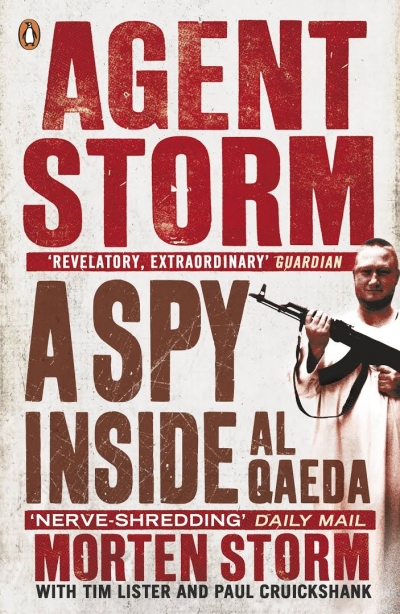



 Eric Walberg
Eric Walberg
As the takfiri group, the Islamic State (IS) continues to confound the West with its consolidation of a Salafist-inspired resurrection of a ‘caliphate’, the Danish mole responsible for leading the CIA to Anwar al- Awlaki has caused a scandal by publishing his memoirs of life “inside al Qaeda and the CIA”.
Saturday November 07, 2014, 12:09 EST
Review of Morten Storm with Paul Cruickshank and Tim Lister, Agent Storm: My Life Inside al Qaeda and the CIA, Atlantic Monthly Press, 2014.
ISBN 978-0-8021-2314-5
Recruiting Muslims has not been easy for western ‘intelligence’. The New York Police Department has tried for decades to recruit Muslim immigrants, and was finally embarrassed by a 2013 ACLU lawsuit to disband its most public recruiting unit, which essentially blackmailed anyone with a Muslim name arrested on any pretext, including parking tickets.
The most successful double agent prior to Morten Storm was Omar Nasiri (b. 1960s), the pseudonym of a Moroccan spy who infiltrated al-Qaeda, attended training camps in Afghanistan and passed information to the UK and French intelligence services. He revealed all in his fascinating memoirs Inside the Jihad: My Life with Al Qaeda, A Spy’s Story in 2006.
Nasiri offered his services not so much for money (at least, so he claims) but to counter the descent into violence among Islamic groups following the military coup against the elected Islamic government in Algeria in 1992. “The GIA [the Algerian Armed Islamic Group] was riddled from the start with spies from the Algerian secret service” and “agent provocateurs who by 1995 were deliberately shifting the campaign of violence into France, to try and draw Paris into the conflict in opposition to the Islamists and in support for the Algerian state.”
Nasiri realized the GIA was undermining the genuine Islamic struggle and he suddenly found that the French and British intelligence were his allies (however dubious) against rogue elements in the Algerian military dictatorship. Nasiri, who seems to be a sincere Muslim, bitterly opposed to the Wahhabis and Salafis, did not prevent any spectacular terrorist attacks, but by monitoring the jihadist movement in Europe in the 1990s, was instrumental in helping intelligence agencies keep track of recruiting. His loudly proclaimed motive in helping the French and British security forces was to prevent terrorism, though he still wants imperialists out (and told his minders so to the end), and wants a dignified Muslim culture not modeled on the West.
“What I want more than anything is to save Islam from these terrible excesses and innovations.” The insurgents buying Israeli Uzi machine guns was humiliating, but “now something much worse is happening: we’re fighting our wars using our enemies’ tactics. If we, as Muslims, let ourselves become like them—which is to say, like you—then there will be nothing left to fight for. This is my jihad.”
On BBC in 2006 he said that the UK intelligence services were warned in the mid-1990s about the threat posed by al-Qaeda, but failed to act quickly enough. He ended his covert activities by 2000, offered to renew them after 9/11 but was snubbed by the German intelligence. He now lives under a pseudonym. His memoirs are an indictment of both the West’s policies in the Middle East and the bureaucratic bungling of the intelligence agencies.
Morten Storm is a very different kettle of fish. Born in 1976 in a troubled (white) environment, he was abused as a child, joined the feared Bandidos gang, and became a tough criminal convicted of multiple armed robberies and violence, earning up to $10,000 a week smuggling drugs through Europe. As a social outcast, he befriended Muslim immigrants, and converted to Islam in 1997 at the age of 21, inspired by a fellow prisoner Suleiman. A lost soul in search of meaning, he visited the (Salafi) Regent’s Park mosque, and was quickly recruited and offered a free study program in Yemen.
He adopted the Salafi Islamic package wholesale, even telling the head of the Muslim Brotherhood (MB) in Yemen, Sheikh Abdul Majeed al-Zindani, that “you will lead me to hellfire,” since the MB are “innovators where it suited their political ends”, supporting the concept of democratic elections. (Zindani is no shrinking violet. Banned from the US since 2004 as a “Specially Designated Global Terrorist”, he was acquainted with Osama bin Laden and Anwar Awlaki.)
Storm became a street militant and martial-arts trainer in London, joining the inner circle of leading radical cleric Omar Bakri who was active in Hizb ut-Tahrir and Al-Muhajiroun in the UK (he was arrested in 2010 in Lebanon).
Storm’s dubious credibility, given his background, never seemed to have bothered his Salafi brothers. But his Islam soon proved to be skin-deep. He missed his cocaine, drinking and cavorting, and was successfully recruited by the Danish Security and Intelligence Service (PET) in 2006, after a crisis of faith. He couldn’t accept the Salafi “drumbeat of jihadism … moving on from the defence of Muslim lands towards a declaration of war against all disbelievers.”
He flitted back and forth from the UK and Denmark to Yemen, and befriended Anwar al-Awlaki, even arranging his final marriage—to a Croatian Muslim convert ‘Aminah’ (born Irena Horak) in 2010, for which the CIA paid him $250,000 (his memoirs proudly include a picture of the suitcase full of US dollars).
But his appetite proved equal to the talks, and he was soon cash-starved, so he agreed to help the CIA assassinate his friend Awlaki, hoping to pocket the $5m reward.
Awlaki was killed in September 2011, but the CIA never coughed up, and Storm decided to go public with a series of articles in Jyllands-Posten (publisher of the notorious cartoons caricaturing the Prophet Muhammed in 2005), and publish his memoirs, which like Nasiri’s, show the ‘intelligence’ agencies in a shocking light.
But, unlike Nasiri, Storm is genuinely proud to be fighting Islam. “In a school project, my son Osama decided to make me his subject … and wrote an essay entitled: ‘My Dad, the Hero’.” Storm has twinges of regret for murdering his bosom buddy (if his claims are to be believed).
Nowhere in the memoir is Awlaki’s guilt for any terrorist operation actually shown without a doubt. He was rather always on the run, writing fiery tracts for Inspire, encrypting messages, and trying—mostly unsuccessfully—supplies of items that might or might not be for building bombs.
All this seems faintly irrelevant given IS’s success in the past six months. What formerly looked like a wildly optimistic long-term plan on the part of al-Qaeda remains eerily on-track despite the killing of thousands of “terrorists”, including Bin Laden and Awlaki.
What can we learn from these memoirs?
First, while Wahhabi-inspired Islam attracts some disillusioned westerners, their commitment is easily jettisoned. Its rote nature creates a rigid mindset conducive to both terrorism and corruption.
For the past three decades thousands of Saudi youth have chosen death fighting the corrupt, pro-US monarchy, be it by fighting in Syria-Iraq or underground in Saudi Arabia.
Uneducated westerners like Storm are easily seduced by a kind word from a Salafi imam, an offer of a free study course in Yemen, and the simplistic rote beliefs of Wahhabism, which dismiss the scholarly and peaceful activist tradition of the MB (let alone Shi‘ism).
Storm’s most shocking revelation is of a letter from Saudi officials to Al-Qaeda in the Arab Peninsula leader Nasir al-Wuhayshi in 2011 proposing a deal: “They would pardon Wuhayshi and donate weapons and money if they stopped fighting the Saudis and the Americans and focused instead on fighting Shia rebels in northern Yemen.”
Clearly, for western converts to Islam, however well-meaning, secular consumerism is a heavy burden hard to shake. Despite admiring Islam for its truths and its great history, Storm was unable to shed his cultural baggage.
For a century now, since western secularism has taken hold, many disillusioned western youth have embraced eastern beliefs, including Buddhism, Hinduism and Islam. But the first two stop short of trying to transform society through a political movement of reform.
Islam does not shy away from politics; that is why spies like Nasiri keep the faith, while flotsam like Storm stumble into Wahhabism, which mimics the nihilism of western anarchism.
Some western strategists reach out to nonviolent Islamists such as the Muslim Brotherhood. In 2010, President Obama issued Presidential Study Directive 11 (PSD-11) advising a shift from support for dictators to working with “moderate” Islamic political movements (though his actions since then show how wobbly this commitment to peaceful evolution is). They are searching for ways other than war to deal with the now uncontrollable extremists, to stabilize Muslim society where the post-colonial neoliberal model has failed.
Other strategists, like Storm’s handlers, continue to live in a fantasy world of 007 and double agents, sure that if they can only kill that nasty Bin Laden, Awlaki, whomever, we will all live happily ever after.
END
